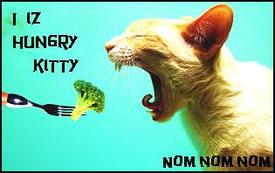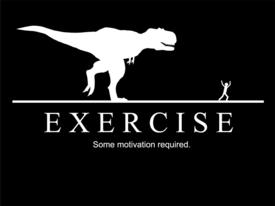does food realy make you fat
Replies
-
no, not necessarily.
"Why are thin people not fat":
http://inhumanexperiment.blogspot.co.uk/2010/07/why-are-thin-people-not-fat.html
"Does dieting make you fat?" (Twin study):
http://www.nature.com/ijo/journal/v36/n3/full/ijo2011160a.html
There is also a very interesting study giving evidence for the pretty much complete lack of correlation between someone's weight and calories consumed, but I can't seem to find it right now...
I agree with this, mostly. These studies suggest that it' has nothing to do with calories consumed.
if you truly belive that, then why are you on MFP COUNTING CALORIES?
I don't believe calories matter that much, but I log my food anyway because MFP is a useful tool for tracking macro ratios in my diet.0 -
Not sure if srs
LOLOLOL 0
0 -
I used to be able to eat whatever I want, whenever I wanted, and I was TINY. Then, one day my metabolism caught up to me. Eating like that is a really hard habit to break. The weight started packing on like crazy. Now I'm eating less/better and working out more and dropping weight. Considering that there's a direct correlation between calories burned/a calorie deficit and weight loss for MOST people, I would say that food definitely does play a large role in your weight.
But hey, if you don't believe us and the general consensus of the health community, by all means, conduct your own experiment and stuff your face. Good luck in not gaining weight 0
0 -
If you continually eat more than you need then yes it will make you fat.
Ignoring the studies doesn't make that statement true. Although, the study was not able to look long term. But, short term, it wasn't true hat eating in excess made thin people fat.
What makes the statement true is that it's true.
Energy intake effects energy output and some people will burn more when they eat more, but if you continually eat more than you burn you will get fat.
You should also not conclude that I am ignoring research just because I don't look at one study and decide to disregard thermodynamics entirely.0 -
How can you not think calories matter that much? They're ALL that matters, if we're talking purely in terms of body weight. I don't understand how people can't do simple math. The reason some people can eat a crap ton of food and not get fat is because they have a very different metabolic profile than someone who gains weight on far fewer calories. It may be related to their height, weight, age, sex, activity level, body fat %, hormone levels, or all of the above. The point is something is going on in that person's body that causes them to burn more calories than you do, so they get to eat more.
If you are burning 4500 calories per day and are only concerned about maintaining your weight (not losing body fat, not adding muscle, etc.), then sure, calories don't seem to matter that much because you can eat a lot of food without moving the scale. But someone who is only burning 2000 calories per day and is trying to lose weight? That person is acutely familiar with the fact that calories absolutely matter.0 -
Your sister has a fast metabolism. There are a lot of factors that go into what makes a person gain weight, and they are different for everyone.
Maybe. Or maybe she just eats within her limits even if she's eating garbage. That's what I do, yet most people I know seem to have decided I must have been blessed with a fast metabolism.0 -
This content has been removed.
-
This content has been removed.
-
No, it makes you LOOK fat.0
-
If you continually eat more than you need then yes it will make you fat.
Stop speaking so technically, jesus. How are people supposed to understand you?0 -
Not sure if srs
Did you watch the study? 100 f'ing percent srs. Watch the study before you make judgement or snide remarks. The study suggest hat calories have nothing to do with weight gain. Could be a new evolution in our understanding.it also explains why some people can't lose weight no matter what they do. And why there's never gain and just eat whatever they want. BMR increases and decreases depending on calories eaten. So the body works hard to keep you at a steady weight regardless of how much or how little one eats. There, I summarized the study for you.
Ok, the twin study completely doesn't say that, and no, I didn't watch the video because I prefer my studies in peer reviewed journals. The twin study just stated that those who tend to diet essentially end up yo-yo dieting and still end up larger than twins who do not diet. It does not state that excess food consumption does not cause weight gain. In fact, the first paragraph of the study talks about how people tend to go about dieting the "wrong" way which isn't sustainable, so they fall off the wagon. Which essentially explains the results of the study. Not sure why you're referencing it.
I'm not referring to the twin studies. I'm referring to the other one, and that's exactly what it says.
The documentary?0 -
Not sure if srs
Did you watch the study? 100 f'ing percent srs. Watch the study before you make judgement or snide remarks. The study suggest hat calories have nothing to do with weight gain. Could be a new evolution in our understanding.it also explains why some people can't lose weight no matter what they do. And why there's never gain and just eat whatever they want. BMR increases and decreases depending on calories eaten. So the body works hard to keep you at a steady weight regardless of how much or how little one eats. There, I summarized the study for you.
I laughed when you said "watch the study."0 -
How can you not think calories matter that much? They're ALL that matters, if we're talking purely in terms of body weight. I don't understand how people can't do simple math. The reason some people can eat a crap ton of food and not get fat is because they have a very different metabolic profile than someone who gains weight on far fewer calories. It may be related to their height, weight, age, sex, activity level, body fat %, hormone levels, or all of the above. The point is something is going on in that person's body that causes them to burn more calories than you do, so they get to eat more.
If you are burning 4500 calories per day and are only concerned about maintaining your weight (not losing body fat, not adding muscle, etc.), then sure, calories don't seem to matter that much because you can eat a lot of food without moving the scale. But someone who is only burning 2000 calories per day and is trying to lose weight? That person is acutely familiar with the fact that calories absolutely matter.
No they are NOT ALL that matters. Your body isn't some perfect engine - it's not that simple. There are things like hormones and genetics that can alter the CI<CO equation and skew results. Calories are important, but they aren't the ONLY variable in weight loss. I don't understand why people can't do simple biology.0 -
How can you not think calories matter that much? They're ALL that matters, if we're talking purely in terms of body weight. I don't understand how people can't do simple math. The reason some people can eat a crap ton of food and not get fat is because they have a very different metabolic profile than someone who gains weight on far fewer calories. It may be related to their height, weight, age, sex, activity level, body fat %, hormone levels, or all of the above. The point is something is going on in that person's body that causes them to burn more calories than you do, so they get to eat more.
If you are burning 4500 calories per day and are only concerned about maintaining your weight (not losing body fat, not adding muscle, etc.), then sure, calories don't seem to matter that much because you can eat a lot of food without moving the scale. But someone who is only burning 2000 calories per day and is trying to lose weight? That person is acutely familiar with the fact that calories absolutely matter.
No they are NOT ALL that matters. Your body isn't some perfect engine - it's not that simple. There are things like hormones and genetics that can alter the CI<CO equation and skew results. Calories are important, but they aren't the ONLY variable in weight loss. I don't understand why people can't do simple biology.
Cals in > cals out = weight gain. Period.
Cals in is pretty straight forward.
Cals out is more complicated, and I think that's the ultimate point people here are "arguing". Yes, the basics are the basics - BMR, NEAT, exercise, etc. But things like age, hormones, health issues, etc also play a role in how nutrients are processed and ultimately burned or stored. But after everything is said and done, it's still part of the cals out side of the equation, no?
.0 -
my little sister eats junk food mostly,n she has the best body ever,she doesnt gain,she has been skiny since she was born.i wonder if food realy makes you fat n if so y do some people eat a lt bt dnt gain a thing.would love to hear others thoughts,thnx in advance
I'd like to buy a vowel, Pat.0 -
The important thing is that how much you eat is something that you can control to make yourself thinner, and, as long as you do it in a healthy way, healthier.0
-
How can you not think calories matter that much? They're ALL that matters, if we're talking purely in terms of body weight. I don't understand how people can't do simple math. The reason some people can eat a crap ton of food and not get fat is because they have a very different metabolic profile than someone who gains weight on far fewer calories. It may be related to their height, weight, age, sex, activity level, body fat %, hormone levels, or all of the above. The point is something is going on in that person's body that causes them to burn more calories than you do, so they get to eat more.
If you are burning 4500 calories per day and are only concerned about maintaining your weight (not losing body fat, not adding muscle, etc.), then sure, calories don't seem to matter that much because you can eat a lot of food without moving the scale. But someone who is only burning 2000 calories per day and is trying to lose weight? That person is acutely familiar with the fact that calories absolutely matter.
No they are NOT ALL that matters. Your body isn't some perfect engine - it's not that simple. There are things like hormones and genetics that can alter the CI<CO equation and skew results. Calories are important, but they aren't the ONLY variable in weight loss. I don't understand why people can't do simple biology.
Cals in > cals out = weight gain. Period.
Cals in is pretty straight forward.
Cals out is more complicated, and I think that's the ultimate point people here are "arguing". Yes, the basics are the basics - BMR, NEAT, exercise, etc. But things like hormones, health issues, etc also play a role in how nutrients are processed and ultimately burned or stored. But after everything is said and done, it's still part of the cals out side of the equation, no?
.
No.
I have gained weight on 1200 calories before. And no, it's not because I'm lying or I cheated - it's because of my body's enormous hormonal reluctance to let go of fat. I might be in a minority but it's a growing one. Macro are just as important as calories because when I changed my macros I started to lose. So basic calorie counts do NOT dictate overall weightloss for some of us.0 -
How can you not think calories matter that much? They're ALL that matters, if we're talking purely in terms of body weight. I don't understand how people can't do simple math. The reason some people can eat a crap ton of food and not get fat is because they have a very different metabolic profile than someone who gains weight on far fewer calories. It may be related to their height, weight, age, sex, activity level, body fat %, hormone levels, or all of the above. The point is something is going on in that person's body that causes them to burn more calories than you do, so they get to eat more.
If you are burning 4500 calories per day and are only concerned about maintaining your weight (not losing body fat, not adding muscle, etc.), then sure, calories don't seem to matter that much because you can eat a lot of food without moving the scale. But someone who is only burning 2000 calories per day and is trying to lose weight? That person is acutely familiar with the fact that calories absolutely matter.
No they are NOT ALL that matters. Your body isn't some perfect engine - it's not that simple. There are things like hormones and genetics that can alter the CI<CO equation and skew results. Calories are important, but they aren't the ONLY variable in weight loss. I don't understand why people can't do simple biology.
Cals in > cals out = weight gain. Period.
Cals in is pretty straight forward.
Cals out is more complicated, and I think that's the ultimate point people here are "arguing". Yes, the basics are the basics - BMR, NEAT, exercise, etc. But things like hormones, health issues, etc also play a role in how nutrients are processed and ultimately burned or stored. But after everything is said and done, it's still part of the cals out side of the equation, no?
.
No.
I have gained weight on 1200 calories before. And no, it's not because I'm lying or I cheated - it's because of my body's enormous hormonal reluctance to let go of fat. I might be in a minority but it's a growing one. Macro are just as important as calories because when I changed my macros I started to lose. So basic calorie counts do NOT dictate overall weightloss for some of us.
Can you expand on that? What does "enormous hormonal reluctance to let go of fat" mean? You gained on 1200 cals, but are losing now. Are you eating more, or just different macros?0 -
:laugh:my little sister eats junk food mostly,n she has the best body ever,she doesnt gain,she has been skiny since she was born.i wonder if food realy makes you fat n if so y do some people eat a lt bt dnt gain a thing.would love to hear others thoughts,thnx in advance
I'd like to buy a vowel, Pat.0 -
No they are NOT ALL that matters. Your body isn't some perfect engine - it's not that simple. There are things like hormones and genetics that can alter the CI<CO equation and skew results. Calories are important, but they aren't the ONLY variable in weight loss. I don't understand why people can't do simple biology.
I'm pretty sure I acknowledge hormone levels and "genetic factors" like height, sex, etc., in my post. I'm sorry I didn't realize I was dealing with someone who can't read. Carry on.
Here, let me quote you:How can you not think calories matter that much? They're ALL that matters, if we're talking purely in terms of body weight. I don't understand how people can't do simple math.
All that matters, huh? I didn't realize I was dealing with someone who can't write.0 -
Everybody's different. Some people just have a faster metabolism. My brother and his girlfriend eat whatever they want and never gain an ounce. He's 5'9", 120 lbs, and his girlfriend is 5'3" and 94 lbs.0
-
Yes, some people put on weight more easily than others. A lifetime of observation has shown me it is true and it is great to see science is finally catching up. Regardless of this, we are stuck with the cards we have been dealt. It is no use bemoaning the fact that some of us need to be a bit more careful than others - we just do! So THAT is why I am on MFP !0
-
No they are NOT ALL that matters. Your body isn't some perfect engine - it's not that simple. There are things like hormones and genetics that can alter the CI<CO equation and skew results. Calories are important, but they aren't the ONLY variable in weight loss. I don't understand why people can't do simple biology.
I'm pretty sure I acknowledge hormone levels and "genetic factors" like height, sex, etc., in my post. I'm sorry I didn't realize I was dealing with someone who can't read. Carry on.
Here, let me quote you:How can you not think calories matter that much? They're ALL that matters, if we're talking purely in terms of body weight. I don't understand how people can't do simple math.
All that matters, huh? I didn't realize I was dealing with someone who can't write.
It is all that matters. Hormones and genes affect calorie expenditure. They are secondary factors. Calorie balance is literally all that matters.0 -
Yes, some people put on weight more easily than others. A lifetime of observation has shown me it is true and it is great to see science is finally catching up. Regardless of this, we are stuck with the cards we have been dealt. It is no use bemoaning the fact that some of us need to be a bit more careful than others - we just do! So THAT is why I am on MFP !
It's really not true actually. Some people put on more weight because they eat more or burn fewer calories.0 -
Everybody's different. Some people just have a faster metabolism. My brother and his girlfriend eat whatever they want and never gain an ounce. He's 5'9", 120 lbs, and his girlfriend is 5'3" and 94 lbs.
I absolutely guarantee you beyond any doubt whatsoever that your brother and his girlfriend either eat far fewer calories than you think, or burn far more than you think. Possibly both.
The amount that people eat when just left to themselves without thinking about calories varies enormously. Left to myself, I'd easy eat 3000-5000 calories a day. One of my friends who "eats whatever he wants and doesn't gain weight" consumes more like 1900-2200. I've actually observed and calculated this for several people. He eats almost nothing but junk food and fast food. He just doesn't eat nearly as much of it as I tend to.
Quantity matters. It matters a LOT. At a party with a bunch of snacks out, I'll eat Doritos and he will eat Doritos. But he'll just eat a few chips and be done with it. I'll eat half the bowl.
The bottom line is that "metabolism" just doesn't vary that much from person to person. What really DOES vary a great deal is energy expenditure, in the form of movement, and calorie intake.0 -
When I was around 19-21 I was in the best shape of my life (I had abs!!), and I lived off chocolate bars, hot dogs, cheese steaks and Chinese food. I just ate less total calories because I only ate when I was hungry and my portion sizes were tiny.
I gained weight when I was introduced to the joys of emotional eating, and was put in situations where I had to eat when I wasn't hungry.
I don't subsist largely on junk food anymore, but not because I think junk food will make me gain weight. Its just more efficient to get my calories from nutrient dense whole foods. I think keeping packaged/junk foods to 10-20% of your diet is a good guideline for people who prefer moderation over abstinence.0 -
Slightly off topic, but PLEASE SPEAK ENGLISH!0
-
If you continually eat more than you need then yes it will make you fat.
science.
and math.0 -
my little sister eats junk food mostly,n she has the best body ever,she doesnt gain,she has been skiny since she was born.i wonder if food realy makes you fat n if so y do some people eat a lt bt dnt gain a thing.would love to hear others thoughts,thnx in advance
I'd like to buy a vowel, Pat.
Lmao.0 -
Bump to read later0
This discussion has been closed.
Categories
- All Categories
- 1.4M Health, Wellness and Goals
- 398.1K Introduce Yourself
- 44.7K Getting Started
- 261K Health and Weight Loss
- 176.4K Food and Nutrition
- 47.7K Recipes
- 233K Fitness and Exercise
- 462 Sleep, Mindfulness and Overall Wellness
- 6.5K Goal: Maintaining Weight
- 8.7K Goal: Gaining Weight and Body Building
- 153.5K Motivation and Support
- 8.4K Challenges
- 1.4K Debate Club
- 96.5K Chit-Chat
- 2.6K Fun and Games
- 4.8K MyFitnessPal Information
- 12 News and Announcements
- 21 MyFitnessPal Academy
- 1.5K Feature Suggestions and Ideas
- 3.2K MyFitnessPal Tech Support Questions

















